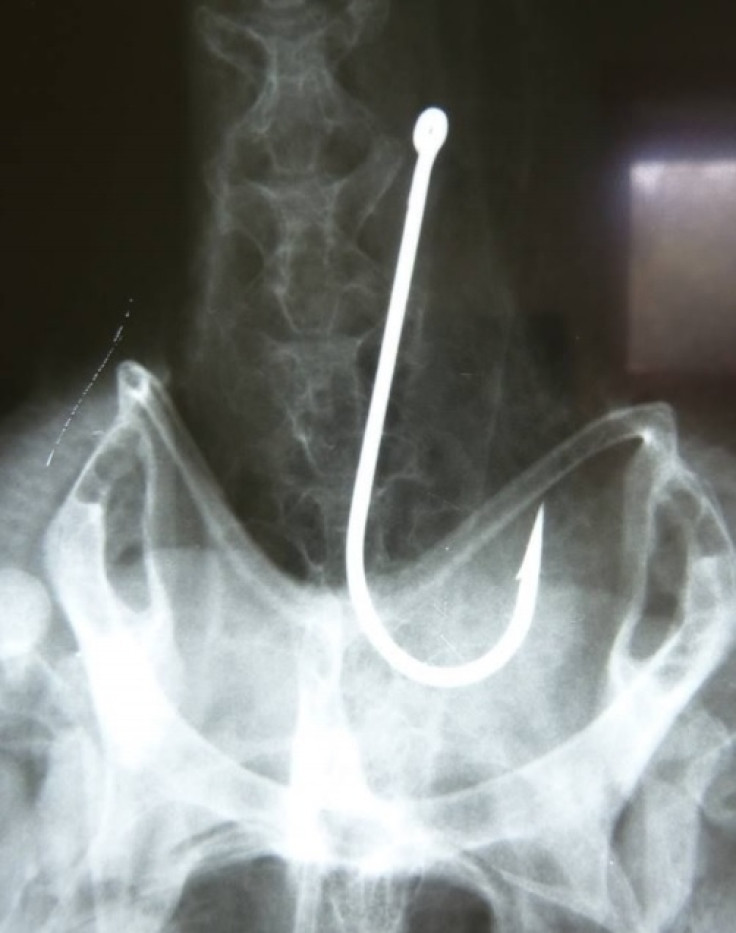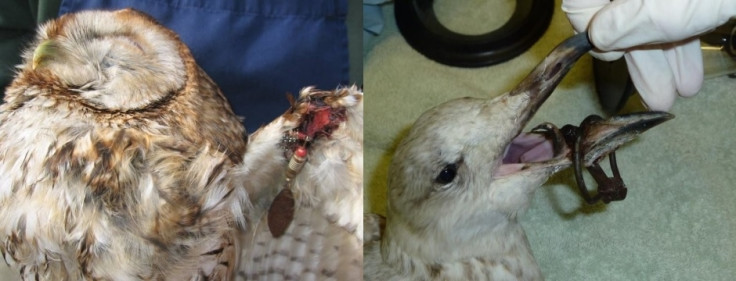Here's what happens to wildlife when fishermen don't properly dispose of their lines and hooks
RSPCA issues plea for people to dispose of litter after dealing with thousands of injured animals a year

Horrific images showing the damage that can be done to wildlife when fishermen and anglers do not dispose of their paraphernalia have been released as part of an awareness campaign.
The RSPCA is joining calls from the Angling Trust, urging people to properly get rid of their hooks and other items as figures reveal thousands of animals are getting caught or injured in fishing litter every year.
The RSPCA said there were 3,803 reports of wild animals caught in fishing litter in 2016, including 1,298 swans, 1,294 geese and 388 ducks. Mammals such as seals (42) and even family pets like dogs (10) and cats (9) were also affected by fishing items not being properly disposed.
According to the figures, the RSPCA handled 574 reports of animals caught in fishing litter in the month of June 2017 alone.
The most serious issues surrounding fishing items include animals getting strangled on old lines and injuries from fishing hooks.
Llewelyn Lowen, RSPCA wildlife information officer, said: "I would strongly urge those who enjoy fishing to be extra cautious when packing up to make sure no litter is left behind. Most anglers are very responsible when disposing of their litter, but it only takes one careless person to endanger the life of an animal.
"If any member of the public sees discarded litter around, if they could pick it up and put it in the bin they may save an animals life."
"All sorts of litter can cause problems. Lines can wrap around necks causing deep wounds in flesh and cutting off the blood supply, hooks can pierce beaks or feet, become embedded in skin or get caught in the bird's throat, and weights can be swallowed causing internal injuries and blockages."

Dilip Sarkar , Angling Trust fisheries enforcement support service national enforcement manager, added: "Responsible anglers leave only footprints and care deeply for all wildlife.
"Indeed, we have worked in partnership with the Swan Convention to issue guidelines regarding what action to take should a swan, for example, ever be found in distress. Moreover, our Volunteer Bailiffs frequently work with our formal partner, the Environment Agency, and police, to report anti-social behaviour and other, wider, offences on our waterways – and often collect litter as a matter of course.
"Unfortunately, as with all things, an irresponsible minority spoil it for everyone, so these people need either educating or prosecuting. Endangering wildlife through any kind of irresponsible behaviour, by anyone, is simply unacceptable."

© Copyright IBTimes 2024. All rights reserved.






